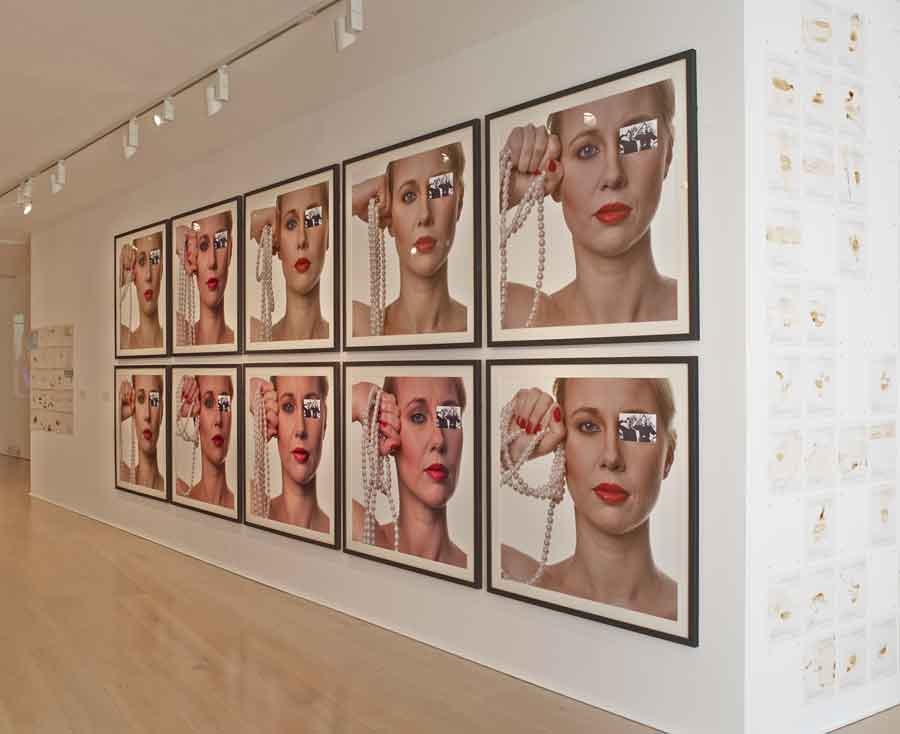Curated by Zagreb-based collective What, How & for Whom/WHW, this group exhibition of video, text, drawing and installation by 20 international artists takes as its starting point, and its title, the text Dear Art (1999), a work by the Serbian-born, Croatian conceptual artist Mladen Stilinović. Penned as a love letter to the medium of art itself, Stilinović’s missive is a critique of art’s complex relationship to power, politics and value, and as such is part lament and part chastisement for art’s perceived passivity in its co-option by the structures of power and money. In addressing ‘art’ as if it were a sentient being, Stilinović also suggests that it might serve its cause in trying to effect change better if it stopped enjoying being courted by power, and instead kept a lower profile for a while.
The four female members of WHW (Ivet Ćurlin, Ana Dević, Nataša Ilić and Sabina Sabolović), along with designer Dejan Kršić, came together as a curatorial collective through shared political interests, in the same year that Stilinović’s Dear Art was written. Fifteen years on, their Dear Art exhibition, originally conceived for and shown at the Museum of Modern Art Ljubljana/Museum of Contemporary Art Metelkova, is a response to Stilinović’s text in the form of a snapshot of art’s relationship to politically and critically engaged practice in the present day.
Stilinović’s missive is a critique of art’s complex relationship to power, politics and value
The question of whether art can be an effective agent of political change is central to the work of Berlin-based Belarus artist Marina Naprushkina. In 2007 she set up the ‘Office for Anti-Propaganda’ as an archive of and vehicle for political actions and publications. In her short film The Emperor Is Naked (2013), Naprushkina’s voiceover calls for artists, as part of society, to engage with rather than distance themselves from politics and society’s problems, as she herself is seen demonstrating for freedom of speech outside the Belarusian embassy in Berlin. Collaborative Croatian duo Fokus Grupa (Iva Kovač and Elvis Krstulović) work in a range of media, but are represented here by their ongoing series of pencil drawings depicting other artists’ political and legal actions over the last century, including an artist picket line in New York in 1936, the first International Dada fair in 1920 in Berlin and the founding members of the first women’s gallery cooperative at the A.I.R. Gallery in New York, in 1972.
Elsewhere, artists highlight issues of gender politics within political activism (Sanja Iveković); gender and language (Halil Altındere); access to information (Marcell Mars); and ownership and copyright (Cesare Pietroiusti). Along with a handout of his reprinted Dear Art text, Stilinović is represented by a series of works (from 1976 to 2006), in the form of simple text and sculpture representations of political expressions – a thin red line – Red Thread (1976); six loaves of bread placed diagonally on the floor, each with a triangular slice of gateau perched on top – titled Bread, Cakes (For Marie-Antoinette) (1996).
Did art follow Stilinović’s advice and become less passive and more engaged? On the strength of the work here, you’d have to say yes; but then look at the network of high-profile individuals who surround the art market, and the price people are willing to pay for certain art objects, and you’d have to say no. Perhaps it’s time Stilinović wrote another letter.
Originally published in the March 2014 issue.
